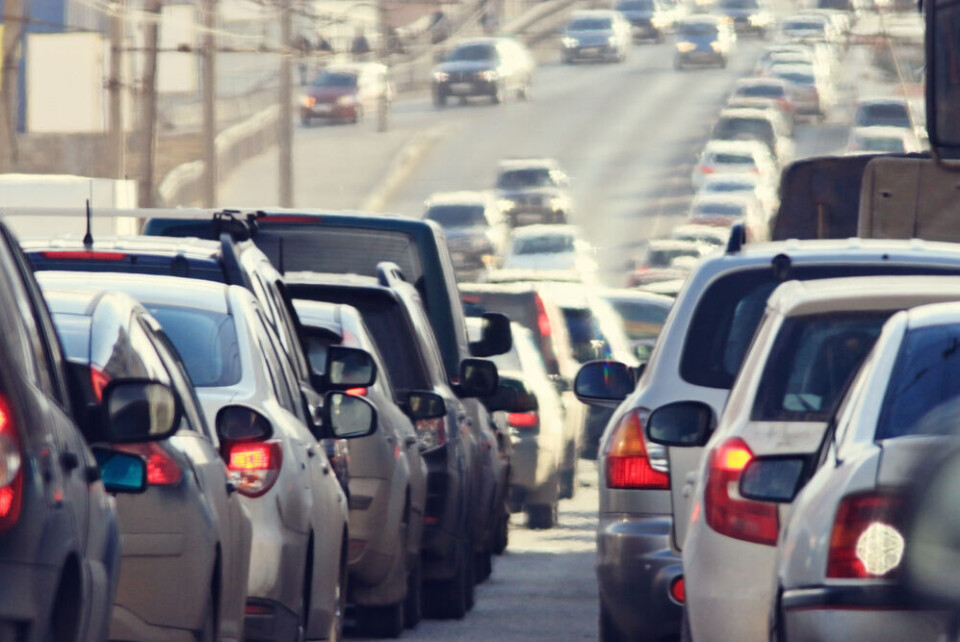-
Loire vineyard invites Taylor Swift to visit after documentary cameo
Disney+ documentary puts family vineyard in the international spotlight
-
39 bombs wash up on Gironde beach following World War Two bunker collapse
Shells were defused by experts but prefects warn others may remain
-
French airports request EES rollout suspension this summer
Risk of congestion feared if April full deployment of system for all eligible passengers takes place
Noise pollution in France costs €156billion per year, study finds
Noise pollution has a serious impact on physical and mental health as well as the economy. Over two thirds is created by transport

The cost of noise pollution in France is €156billion per year a new study has found.
The negative health impact, and other effects of noise pollution on the French population were measured in the study, by le Conseil national du bruit (CNB) and l’Agence de la transition écologique.
The total figure is not only to be as interpreted as an immediate physical cost. It takes into account many factors such as property depreciation, medication and hospitalisation, learning difficulties, direct or indirect links to some illnesses (diabetes, mental health problems, obesity and cardiovascular diseases amongst others), discomfort and sleep disturbances that result into a loss of productivity. A combination of all of these factors leads to a general cost to France and its economy.
It found that noise pollution adversely affects 25million people in France, and is “a major preoccupation for people in France in their daily lives”.
Nine million people in France are exposed to noise at levels over authorised limits.
It can also have serious consequences on people’s health including sleep problems, cardiovascular illness, obesity and diabetes.
The study found that 432,000 people in France have taken anti-anxiety drugs and 2,600 people have died from cardiovascular issues provoked by unwanted noise.
It also impacts the economy, leading to extra hospitalisations, time off work and loss of productivity, as well as influencing house prices.
Transport responsible for 68.4% of noise
Transport is a major contributor, with the study finding it responsible for “68.4% of social costs, equivalent to €106.4billion per year”.
Of this, 51.8% of costs are caused by noise pollution due to roads, followed by 9.4% caused by air traffic and 7.2% by railways.
Noisy neighbours (including music, pets and DIY), building sites and work environments such as industrial sites, the service sector, schools and hospitals are also contributors.
Noisy neighbours are thought to cause costs of €26.3billion and building sites €21billion per year.
A similar study in 2016 found that the effects of noise pollution cost €57billion per year, meaning a rise of just under €100billion in five years.
This does not necessarily mean that people in France are being exposed to more noise – rather that the study methods have become more detailed.
“Our evaluation methods use new data, which is more precise,” Laurianne Rossi, president of the CNB, told Le Figaro.
The latest study also measured the effects of noise pollution on obesity, high blood pressure and mental health.
Ms Rossi said the Covid-19 health crisis has also made people more sensitive to noise.
“The first confinement, during which silence was imposed upon us, made us more aware of our [normal] audio environment and made it more difficult to cope with when it returned,'' she said.
Calm and silence ‘privilege of the wealthy’
She called for more action to be taken against noise pollution. “Today, we combat air pollution because we clearly associate it with respiratory illness and we have studies saying that it kills 48,000 people per year.
“We don’t do as much to counter noise.”
She added that noise pollution “is not just an annoyance, but a real public health issue”.
Ms Rossi, who is also MP for Hauts-de-Seine, said improvements could be made by working with the transport sector to introduce measures such as quieter motors and to manage flight paths.
“[Paris] Orly Airport, for example, has a curfew so there are no flights at night,” she said.
She added that noise pollution does not impact people in France equally. “Noise is a real marker of social inequality,” she said.
“Calm and silence are the privilege of the wealthiest in France and, unfortunately, we often see that those who are exposed to noise and air pollution are the most vulnerable. That is not acceptable.”
Related stories
French rural residents fear loud motorbikes will disturb summer calm
'Transforming Paris’ ring road could help unify the city or divide it'
























